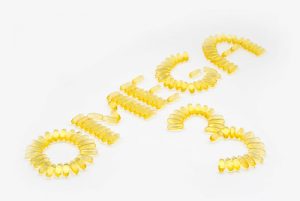Some pregnant women choose to take prenatal vitamins as a kind of nutritional supplement throughout the gestation period to ensure they are not deficient in the necessary amount of essential nutrients to meet their needs while pregnant. But the question is, should you use them even when they’re not pregnant?
There are important nutrients required for our bodies to operate at their optimal level. They are involved in a wide variety of functions inside the body, including the metabolism, the immune system, as well as the development and repair of cells. Vitamins may be found in fruits, vegetables, meat, dairy products, and other foods. Fruits and vegetables are particularly rich in nutrients which can be obtained when you are on a healthy diet.

In addition, you may get some vitamins by taking supplements specifically geared toward adults. To keep our bodies in excellent shape, it is necessary to consume sufficient vitamin-rich foods or take vitamin supplements. However, many women and adult men are taking excess vitamins which may cause serious health problems, especially when too high of a dose is taken. Despite its good benefits, consume it in the recommended amount. It’s important to consult your primary care physician or registered dietician.
The main difference between prenatal vitamins and regular multivitamins is that folic acid, iron, and calcium are often found in much greater concentrations in prenatal vitamins compared to other types of multivitamins like women’s multivitamin options. In addition to the prenatal vitamin, some adult women may also want to take supplements that are specifically formulated to contain certain nutrients like an omega-3 fatty acid supplement separately to suffice other nutritional needs.
Should I Use Prenatal Vitamins If I’m Not Pregnant?
So should you take them even when you’re not expecting a baby or trying to get pregnant? These prenatal vitamins have a specific formulation, but they are not only for pregnant ladies. Some non-pregnant people choose to take them even if they aren’t expecting. There are even prenatal vitamins for men. Some women also continue taking prenatal vitamins even after pregnancy. Folate is a nutrient that helps prevent neural tube defects and abnormalities in growing newborns.
To aid your concerns regarding neural tube defects like spina bifida, many doctors suggest that all women of reproductive age take a daily multivitamin that includes 400 micrograms (mcg) of folate. This is because taking folate and other vitamins during pregnancy lowers the risk of certain birth defects and health problems. Prenatal dietary supplements also contain vitamin B, which helps prevent birth defects and improve brain development and neural tube development.
- Therefore, it is a good idea to start and plan to continue taking pregnancy vitamins right now if you are trying to conceive, according to the American College of Obstetricians and Gynecologists.
- You should look for one that meets your key nutrient needs and an appropriate quantity of folic acid, in addition to other critical minerals such as iron and calcium.
- Being reminded not to take too much folic acid or too much iron is important for it may cause side effects that harm your health.
- To other healthy adults, be reminded that it is important to put particular emphasis, especially the expecting woman on the recommended intake of the physician.
Will You Get Prenatal Nutrients From Your Food?
When it comes to the question of whether all pregnant adult women or breastfeeding women should take them, no one answer applies to everyone. While it’s possible that some women may obtain enough nutrients from the food they eat, others would be better off taking a supplement, especially considering factors such as fetal growth and the nutritional demands of breastfeeding.
Prenatal vitamins may contribute to the well-being of both the mother and the baby by supporting essential nutrients in breast milk. Your healthcare professional will be able to assist you in deciding whether it is safe for you to take these vitamins throughout your pregnancy and while breastfeeding.
If you do decide to take prenatal vitamins, you must choose a dietary supplement of the highest possible quality. Look for a supplement that has received approval from a reputable third party, such as the United States Pharmacopeia (USP) or NSF International. These organizations establish guidelines for dietary supplements and make sure that those guidelines are adhered to by manufacturers.
Moreover, a good pregnancy diet should include pregnancy vitamins, which are just one component of that diet. In addition to taking a supplement that is formulated specifically for your needs, you should make it a point to consume a diet that is abundant in nutrient-dense foods such as fruits, vegetables, whole grains, cereals, and lean proteins.
These extra vitamins and nutrients can promote thicker hair and nail growth and can help increase blood volume including red blood cells in your body. You may help give your kid the greatest possible start in life by maintaining a balanced diet and taking pregnancy vitamins and supplement calcium while you are in the gestation stage.
Prenatal Vitamins
We’ve outlined the following advantages of taking maternity supplements:
- Taking prenatal vitamins may assist in the prevention of some birth abnormalities.
- Taking prenatal vitamins may assist in enhancing both the mother’s and the child’s overall health.
- Being consistent with prenatal vitamins may help in preventing premature labor as well as low birth weight.
- When taking prenatal vitamins, there may be an increased likelihood of having a healthy baby after delivery.
- There is evidence that taking these vitamins may help lower one’s chance of developing some forms of cancer.
You may take prenatal vitamins even if you are not pregnant. These supplements are designed to provide a comprehensive array of essential nutrients, supporting various aspects of health. Here’s a list of some common pregnancy supplements and their explanations, ensuring you receive all the nutrients your body needs:
Folic Acid
Folic acid is a kind of vitamin that dissolves in water and is most often found in foods like leafy green vegetables and fruits. Nutrient deficiencies, particularly in folic acid, can have serious consequences, especially during pregnancy. It plays an essential role in the formation of the neural tube and assists in the prevention of birth abnormalities in the infant.
The daily dose of folic acid that should be adhered to by non-pregnant women is suggested to be 400 mcg. However, it’s important to avoid excessive amounts, as going beyond recommended levels can have adverse effects.

Iron
Iron is a mineral that may be found in food, and its presence is necessary for the creation of hemoglobin, which is the protein responsible for transporting oxygen throughout the body. Iron deficiency anemia, which may be caused by a lack of iron in the body, can contribute to weariness as well as other health issues. Iron also helps create the extra blood cells needed while carrying a baby. Adequate folate is crucial during pregnancy.
The recommended daily intake of iron for women who are not expecting is 18 milligrams. Prenatal vitamins with iron contain more than that. Doctors recommend eating fortified food like breakfast cereal, bread, and snack bars to get enough iron and other nutrients. Too much iron may affect zinc levels and cause loose stools though, so be mindful of your intake.
Calcium
Calcium is a mineral present in various foods, and ensuring an adequate intake is crucial for promoting the development of strong bones and teeth, including those of a baby’s bones. Additionally, it plays a role in blood clotting and nerve function. The recommended daily calcium intake for women who are not pregnant is one thousand milligrams, and it’s important to be mindful of the upper limit.
Consider incorporating a prenatal multivitamin, including calcium daily, to meet these nutritional needs, but be cautious not to exceed the upper limit to maintain a balanced intake. Consult with your healthcare professional to determine the most suitable supplement for your individual needs.
Vitamin D
Vitamin D is a fat-soluble vitamin that may be found in a variety of foods. It plays a critical role in the body’s ability to absorb calcium. In addition to this, it contributes to the development of healthy bones and teeth. A daily consumption of at least 800 international units is also recommended for moms-to-be since this is the amount that is considered safe for their developing babies.
A wide range of foods, particularly fatty fish like salmon, tuna, and mackerel, are good sources of vitamin D. Other dietary sources include beef, liver, egg yolks, cheese, and milk. Getting enough time in the sun is another excellent strategy to meet your daily vitamin D requirements. Just 15 minutes of exposure to sunlight may help your body become more efficient at producing the vitamin.

Omega-3 For Pregnancy
Oily fish, such as salmon and trout, are excellent sources of omega-3 fatty acids, a form of unsaturated fat that may be found in these species. They play an essential role in the maturation of both the brain and the eyes. The recommended daily intake of omega-3 fatty acids for non-pregnant women is advised to be 1000 mg to ensure an adequate amount. During pregnancy, these same nutrients are vital for fetal development. Incorporating fish or omega-3 supplements into your diet will help you meet these nutritional needs.

Final Thoughts
In conclusion, while prenatal vitamins are specifically designed to support the nutritional needs of pregnant people, some individuals may choose to take them even when not pregnant. The decision to take a pregnancy vitamin should be made with careful consideration of individual health needs, including the pursuit of optimal health. Consulting with a healthcare professional is recommended to ensure that any supplementation aligns with personal health goals and requirements.
Frequently Asked Questions:
Do I Still Need Prenatal Vitamins If I Eat Healthy?
Eating fortified foods as part of a balanced diet makes taking a dietary supplement unnecessary. But if you, like most women, aren’t sure if you’re getting enough vitamins, pregnancy supplements will help you fill any nutritional gaps.
When Is The Best Time To Take Your Prenatal Vitamins?
According to experts, starting pregnancy supplements at least three months before conceiving is recommended by experts to support a healthy pregnancy. Even if you start taking them one month before, you’re still greatly reducing the risk of spinal cord issues and other health conditions. These key differences in the timing of prenatal supplement initiation underscore the significance of early nutritional support for both the mother and potential baby.
Can I Take Prenatal Vitamins If I Want To Get Pregnant?
It’s a good idea to start taking prenatal vitamins before getting pregnant. It is recommended for women who are planning to conceive to start taking pregnancy vitamins with folic acid at least one month before trying to conceive. This early intake helps ensure that the woman’s body has the necessary nutrients, including folic acid, which is crucial for the early stages of the baby’s development, particularly the formation of the baby’s neural tube. It’s always a good idea to consult with a healthcare provider before starting any new supplement regimen.
Is It Okay To Take Folic Acid When You’re Not Pregnant?
While the amount of folic acid suggested varies between a pregnant person and someone who is not expecting, doctors do recommend folic acid even when you’re not planning on getting pregnant anytime soon.
Can I Take A Prenatal Vitamin As A Multivitamin?
While prenatal vitamins are designed for pregnant and breastfeeding women, incorporating them as a regular multivitamin may provide excess nutrients. It’s recommended to use a regular multivitamin if you’re not pregnant or breastfeeding to avoid unnecessary doses. Consult with your healthcare professional to determine the most suitable supplement for your individual needs.
What Are The Side Effects Of Taking Prenatal Vitamins Even When Not Pregnant?
Taking prenatal vitamins when you’re not pregnant may lead to potential side effects. This includes:
- Prenatal vitamins when not pregnant can cause excess nutrients.
- Prenatal vitamins when not pregnant can result in digestive issues.
- Prenatal vitamins when not pregnant can cause metallic taste.
- Prenatal vitamins when not pregnant can induce allergic reactions.
- Prenatal vitamins when not pregnant can interfere with medications.
Consult with a healthcare professional before starting any supplement regimen, and consider using a regular multivitamin formulated for your age and gender if you are not pregnant. If you’re planning for pregnancy, you may discuss the option of pre-conception folic acid and B-vitamin supplementation with your healthcare provider.
Who Should Not Take A Prenatal Vitamin?
While prenatal vitamins are beneficial for most women, certain individuals should exercise caution or avoid taking them altogether. Women who are not pregnant or planning to conceive may not need the elevated levels of certain nutrients found in prenatal vitamins, and excessive intake could potentially lead to imbalances.
Additionally, those with specific medical conditions or allergies to ingredients in prenatal vitamins should consult with a healthcare professional before incorporating them into their routine. Always seek personalized advice from a healthcare provider to determine the most suitable supplement regimen based on individual health needs.
What Will Prenatal Vitamins Do To My Body?
Prenatal vitamins play a crucial role in supporting a woman’s health, especially during pregnancy and the childbearing age. Prenatal vitamins contain essential nutrients like folic acid, iron, calcium, and other vitamins and minerals that are vital for a healthy pregnancy and fetal development. Folic acid supplements help prevent neural tube defects, iron supports red blood cell production, and calcium aids in bone development.
These vitamins contribute to the overall wellness of pregnant women, supporting hormonal changes and addressing nutritional gaps, ensuring a healthy environment for both the mother and the developing baby. It’s important to take prenatal vitamins under the guidance of a healthcare professional.
What Are The Benefits Of Taking Prenatal Vitamins Before Pregnancy?
Taking prenatal vitamins before pregnancy offers several benefits, including primary and secondary prevention. These advantages encompass preventing neural tube defects with pre-conception folic acid, supporting blood health with iron, providing essential nutrients for bone and nervous system development, preventing nutrient deficiencies, optimizing nutritional status for a healthy pregnancy, and potentially reducing symptoms of morning sickness.
While prenatal vitamins complement overall health, they are not a substitute for a balanced diet. It’s advisable to consult with a healthcare provider before starting any supplement regimen.
What Do I Need To Know Before I Take Prenatal Vitamins?
Before starting prenatal vitamins, consult your healthcare provider for personalized advice. If planning pregnancy, initiate prenatal vitamins early, emphasizing folic acid. Pay attention to nutrient content, including folic acid, iron, and other vitamins. Remember, prenatal vitamins complement but don’t replace a balanced diet.
Be aware of potential side effects and medication interactions, informing your healthcare provider. Choose a reputable brand and adhere to recommended dosages for both prenatal vitamins and multivitamin supplementation to ensure safety and quality.
Will Taking Prenatal Vitamins Affect Your Period?
Is It Safe To Take Prenatals Every Day?
What Prenatal Vitamins Should I Avoid?
Is It Safe To Take Prenatal Vitamins While Menstruating?
Do Prenatals Make You Gain Weight?
Last Updated on May 9, 2023 by Jeanne Meets
DISCLAIMER (IMPORTANT): This information (including all text, images, audio, or other formats on FamilyHype.com) is not intended to be a substitute for informed professional advice, diagnosis, endorsement or treatment. You should not take any action or avoid taking action without consulting a qualified professional. Always seek the advice of your physician or other qualified health provider with any questions about medical conditions. Do not disregard professional medical advice or delay seeking advice or treatment because of something you have read here a FamilyHype.com.